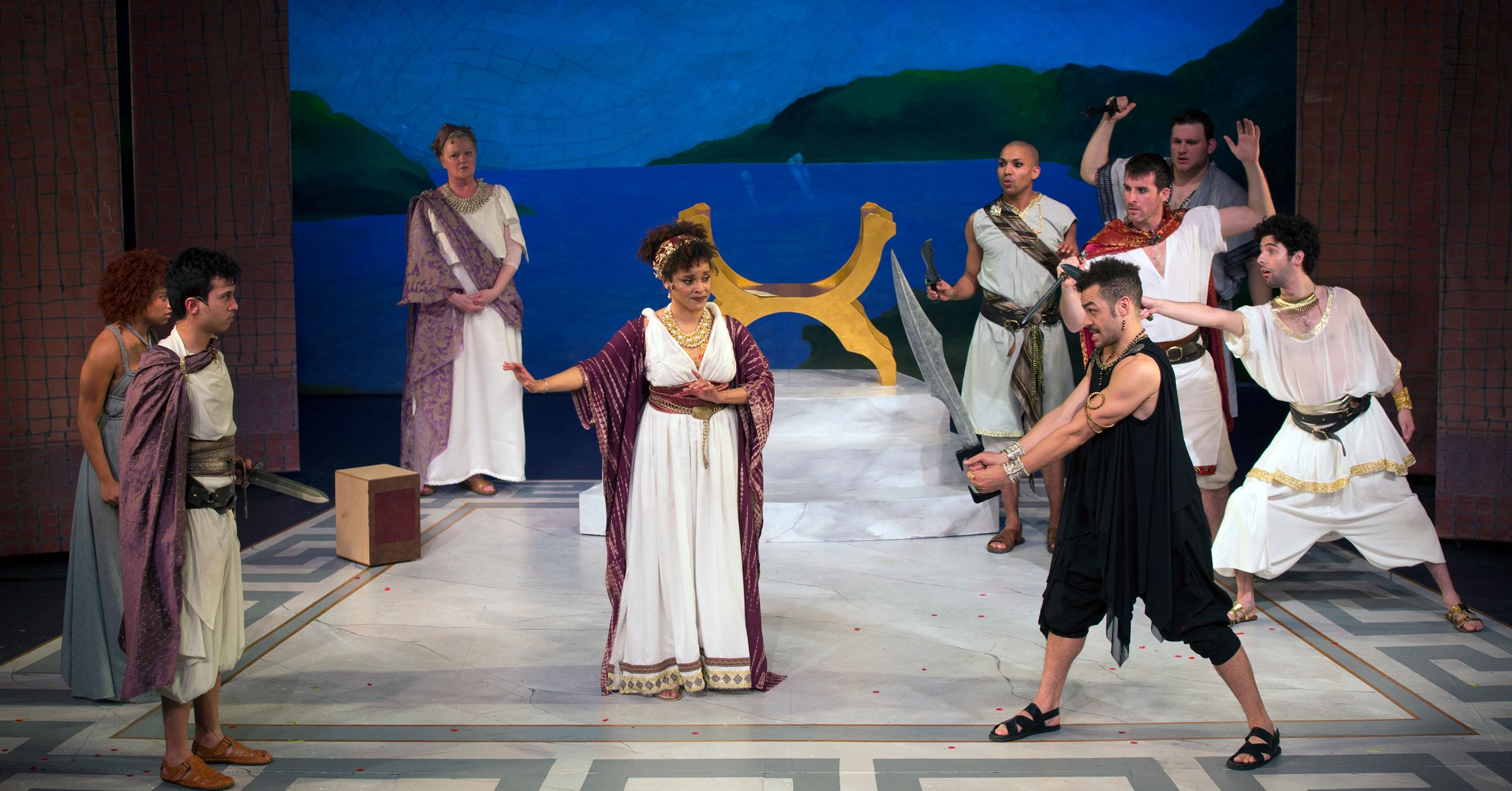In December of 2020, a Wall Street Journal opinion piece reported that the Odyssey, Homer’s epic poem, had been banned by a school in Massachusetts for portraying ‘values inconsistent with today’s norms’. What followed was a flurry of clashing opinions (mostly in tweet-form, naturally) about everything from the role of classic works in contemporary classrooms to social justice, cancel culture and the need to both address and debate themes of sexism, racism and hateful assertions in literary masterpieces. The ancient Greek text in question is among the oldest works of art in existence still being read by modern audiences, laying out king Odysseus’ 20-year journey home from the Trojan war, alongside the story of his wife, Queen Penelope, over the same period of time. While the Odyssey is a seminal work of the Western Cannon, it was, in fact, written in the 8th century BC, and as such the story is bound to be brimming with exceedingly outdated concepts which are sure to feel jarring to post-dark age sensitivities – namely, the concept of gender roles in the poem. Right off the bat, questions arise: why does the author choose to praise a woman for putting her life on hold for two decades, while her husband is shacked up on an island making love to a sea nymph? Why are a wife’s merits more likely to be extolled in connection with the heroism of her husband or son than her own accomplishments? And why does Penelope have to put up with a gaggle of aggressive suitors who feel they have carte blanche to hang out in her palace, eat her food, drink her wine and relentlessly harass her into marrying one of them… Tough behaviors to justify indeed, unless you remember these are words written over two and a half millennia ago.
Into this contentious fray boldly enter Peter Kellogg (librettist/lyricist) and Emily Maltby (director/choreographer,) their version of ‘Penelope’ attempting to re-imagine the classic tale in today’s world. Despite some creative twists to the original plot, York’s ‘Penelope’ generally adheres to the structure of the classic’s narrative, recounting the tale of a woman who truly believes her long-lost lover is headed back home, and in the meantime has to deal with narcissistic admirers (albeit as an a cappella group), raise a child on her own and rule a nation – and do it all in a clearly patriarchal society while relying on her womanly wiles in the absence of equal footing or any actual power. The result is more of a breezy, fun-loving play than a hard-hitting rewrite of history. Britney Nicole Simpson, in her Off-Broadway debut, does a competent and humorous depiction of a character that’s strong-willed if not particularly empowered; Philipe Arroyo and Maria Wirries are endearing as the enamored prince and swineherd, frolicking about the palace grounds to the exuberant music of two-time Richard Rodgers award winner Stephen Weiner. York Theater productions frequently trend towards the agreeable rather than the indignant end of the spectrum – think iconic works by Cole Porter, charming musical theater revivals and delightful Irving Berlin musical numbers; ‘Penelope’ keeps to that charming and proud tradition.
For more details and tickets visit York Theater
